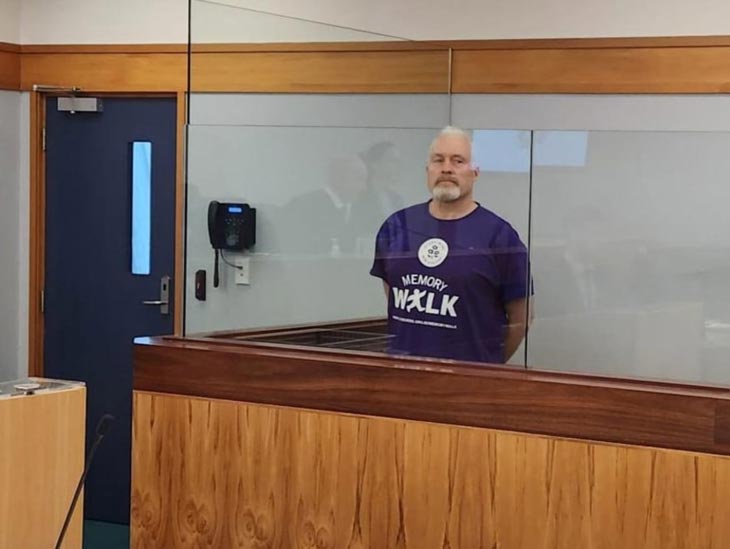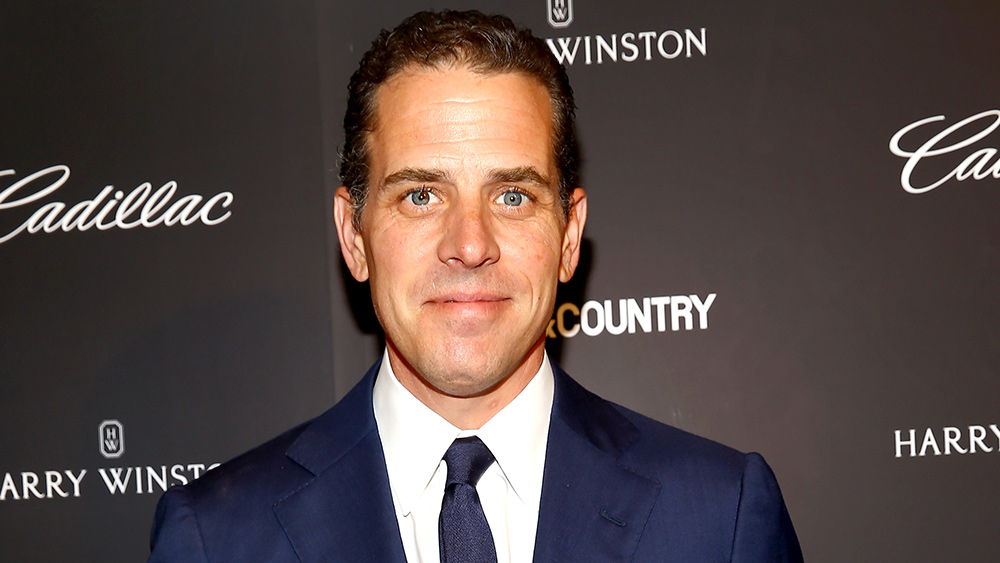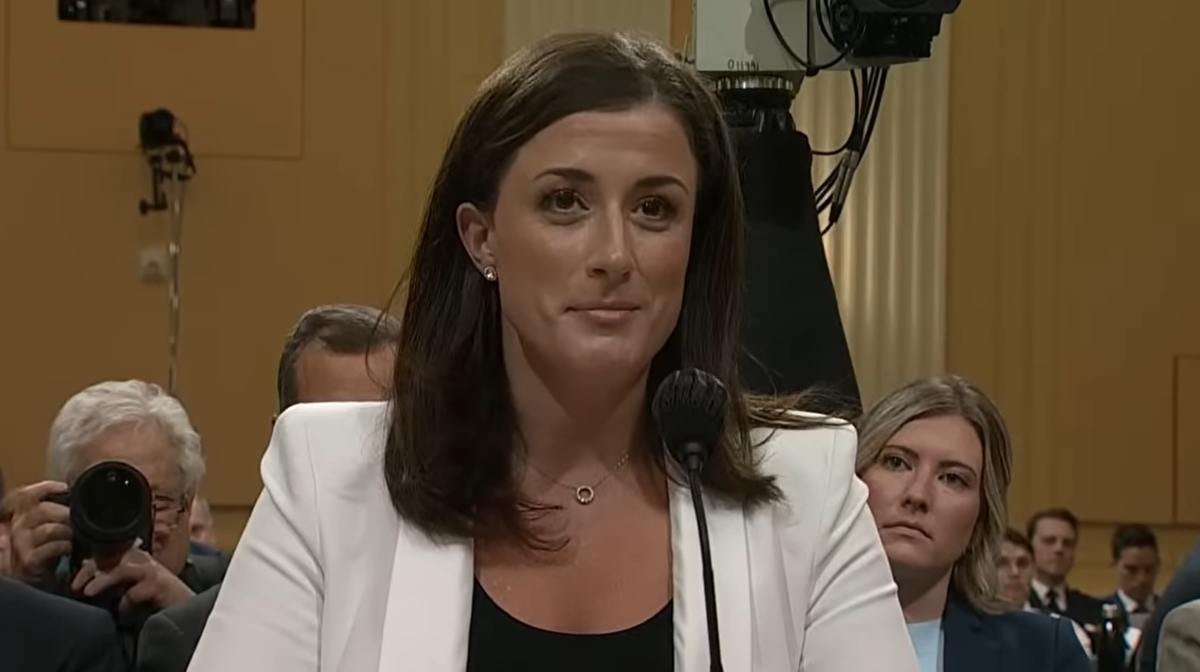Data and dehumanization in the modern era
12/18/2023 / By News Editors

Story at-a-glance
- Data has the potential to make the world a better place by showing us which ideas work and which should be avoided. However, data often fails to live up to its promise because data that threatens a prevailing interest is prevented from seeing the light of day — something we have seen throughout COVID-19
(Article republished from Articles.Mercola.com)
- Recently, a brave whistleblower in New Zealand (who is now facing years in prison) leaked millions of anonymized health records showing the COVID vaccine was causing a large number of deaths
- When interviewed, he stated his reason for leaking was because he was continually haunted by the human suffering he could feel within the numbers he stared at each day. This lies in contrast to the sadly frequent human tendency to see those large datasets as abstract concepts where the observer is separated from the human consequences of those numbers
- Many of the worst regimes in history (aided by newfound technologies) treated their citizens as simply being abstract data points and cogs in the regime’s totalitarian vision. This led to a variety of horrific atrocities which mirror much of what we are now seeing within the modern technocratic age
Over the last two weeks, I put together a series to highlight how time and time again the government has rushed an unsafe and experimental vaccine to market despite its own scientists warning it not to, and then as the injuries piled up, done nothing until the media exposed what was happening and forced the government to pull it.
This was done to illustrate that there is in fact a longstanding precedent for the “health authorities” to do whatever they can to cover up the evidence those injuries are happening, even when doing so becomes a direct violation of their charter (to protect the public good and save lives).
Since this has repeatedly happened (often with disastrous consequences), one would think that it might cause the government to reconsider the wisdom of rushing “emergency” vaccines to market. However, instead, the “lesson” they learned was how critical it was to ensure the media would not expose what was happening. In turn, over the last 25 years, we’ve seen a variety of changes occur to prevent the public from becoming aware of a bad vaccine such as:
• Allowing the pharmaceutical industry to become the primary advertiser for the mass media and then financially blackmail the networks into not airing any coverage critical of the pharmaceutical industry or its products.
Note: This has also come to apply to the other media platforms.
• Coming up with reason after reason to restrict the public’s access to the data used to claim a product is “safe and effective,” and instead have us be expected to take that pronouncement on faith. This goes hand in hand with data being viewed as our salvation, but no one ever questioning why we only see the data that supports the existing narrative.
• Gradually removing the protections afforded to whistleblowers who tried to expose these misdeeds.
Note: This tactic was pioneered by the military. For example, the Vietnam War was largely ended by analyst Daniel Ellsberg leaking the Pentagon Papers (for which Ellsberg was criminally charged but ultimately faced no consequences).
When Wikileaks did the same a few decades later, both the leaker (Manning) and the journalist who published the information (Assange) were sent to prison — with Assange still serving his sentence. Likewise, another prominent leaker, Edward Snowden, had to flee to Russia to protect himself from being imprisoned after he revealed information he believed to be critical for the public good.
However, despite it being quite challenging to be a whistleblower (e.g., most lose their livelihoods and families), people still do it. The following brief video provides one of the best explanations for why a minority of the population always exists to take on that immense risk to do the right thing:
Note: I chose to include Peter Gøtzche’s talk in this article because it provides important context for Barry Young’s actions.
Barry Young
Barry Young found himself in a challenging situation. Because of a job he was contracted for, he had gained access to a database which clearly proved the COVID vaccines were killing people. In turn, he had to wrestle with the decision of whether he wanted to stay silent and be directly complicit in those deaths or publicize the data and be severely punished for doing so.
He eventually chose to leak it and gave an interview to accompany that leak. After watching that interview, I realized it touched on quite a few critical points so I edited and trimmed it down to an 8 minute version which highlighted those points.
This interview aired on November 28, and on November 30, Steve Kirsch released his data. Two days later (December 2nd) police surrounded Barry’s house and arrested him. The next day, he was formally arraigned in court and charged with accessing a computer system for dishonest purposes, which carries a maximum penalty of seven years in prison.
Note: In addition to the potential prison sentence, Barry Young is also almost certainly permanently blacklisted from being hired again.

Note: The journalist in the previous video who helped Young break this story has gone into hiding. For those interested in supporting the legal defense, more information can be found here.
In response to all of this, NZ’s government chose the only option available to them. They did their best to censor Barry’s data (which is essentially futile at this point), discredit his conclusions (by claiming he was not qualified to analyze it), double down on the safety of their vaccines, attack anyone for scaring the public into not vaccinating and lament the epidemic of disinformation and “conspiracy theorists”:
“Apa [the CEO of NZ’s national health service] said misinformation about vaccines was particularly concerning at a time when Covid-19 cases were high. Rates are going up, we are seeing hospitalisations so we really want to keep promoting to New Zealanders who are eligible for Covid boosters to get them.”
Note: I feel responses like this have a limited shelf life, given that they disprove themselves (if the cases are high, then that means the vaccines most of the country already took don’t work) and because the public has largely lost the will to vaccinate (evidenced by the lower and lower booster uptake around the world — including within New Zealand).
Likewise, they made sure to find a victim in this story:
“The man facing charges had worked in a small team of specialised people who were “incredibly devastated” by what happened.”
Note: Remember that each of those “devastated” people saw the same data Barry did but did nothing.
Another memorable quote inadvertently highlights the government’s choice to willfully disregard the data showing it was harming its citizens:
“New Zealanders give their health information to Te Whatu Ora [NZ’s national public health service] in order to make sure that they are cared for appropriately. When it is used for another purpose and that purpose is vexatious, then that is of course of concern,” opposition health spokesperson Ayesha Verrall said.
However, in my eyes the most important quote is this one:
“The data seemed to be “large amounts of vaccine-related information” and appeared to have been anonymised, Apa said. Analysis was continuing, but so far no NHI numbers or personally identifiable information was believed to have been released.”
One of the most common excuses government’s around the world have used to avoid releasing data on the COVID vaccinations is that they don’t want to violate people’s medical privacy, and that this right to medical privacy must be protected under all circumstances.
Note: One of the best illustrations of the insincerity of this statement is the fact that tech companies are often given a blank check to data mine millions of health records.
Prior to the data being released to researchers, Barry made a point to anonymize the data by giving each person a random medical record number and then randomizing the order of each remaining field in the data set. This maintained the database’s statistics (e.g., the average time from vaccination to death, the average mortality for each age group, and the timing of when the deaths occurred) but prevented the individual entries from being linked to a specific person.
This in turn shielded him (or anyone else using the data) from the accusation they were endangering medical privacy and simultaneously negated the longstanding governmental argument these datasets cannot be anonymized and hence cannot be made available to outside scrutiny.
At the same time, it also initially confused a lot of people because that randomization created a few “impossible” events (e.g., someone getting their “first” dose of the COVID vaccine twice with two different vaccines).
Note: In the week before this story broke, I spent a lot of time verifying that the anonymized database did in fact maintain the critical statistics present in the original database. Recently, Norman Fenton (who is more qualified than I am to evaluate these matters) likewise issued a statement affirming the validity of this approach.
Dehumanization
While some humans are malevolent beings who wish for evil, I do not believe most people desire to harm others. Rather, I’ve come to believe that the two most common causes of “evil” are:
1. Lacking the courage to oppose something you know is wrong — This, in turn, is often followed by willfully closing one’s eyes to seeing the evidence something bad is happening (as that reduces the psychological discomfort of being a complicit party in what’s happening).
Note: For this reason, I make a point to never turn a blind eye to things I think are wrong even if I know I am powerless to change them. For example, I feel that what factory farming does to animals is horrifically cruel, so to at least “keep my eyes open,” I will never eat meat that comes from those sources.
2. No longer seeing the victimized party as individual living human beings.
Dehumanization is commonly recognized in the context of hate where one groups that hates another will often see that group as less than human and hence acceptable to treat in an inhumane fashion (e.g., murdering them).
However, I believe it also simply occurs when people’s humanistic processing capacity is overloaded — something that sadly occurs quite frequently in the modern age.
A variety of studies have suggested that (most) human beings have a limited ability to be present to the lives of others which seems to cap out at approximately 150 people. For this reason, a variety of human institutions operate very differently depending on how many people are within them.
For example, in smaller societies like a village (where everyone knows everyone else) democracies work quite well, while in larger ones (where its no longer possible for everyone to be present to everyone else) abstract frameworks inevitably come into being that take the place of human connection and integration.
Note: I believe some individuals have the ability to be present to a much broader view of what is happening around them and how people are affected by their actions. Historically, these people have been known to be the best leaders.
Unfortunately, in our current times, these qualities are rarely seen in our leaders as the political process no longer selects for it and the spiritual practices that cultivate the ability to bear witness to the suffering of many are no longer widely encouraged within our society.
One of the most common consequences of this is that when people rise to power, the people they serve switch from being human being to abstract concepts. In turn, policies are chosen which favor the collective rather than the individual and a collective mentality or “mass formation” (which can be quite sociopathic) often takes over that leadership and their focus becomes fulfilling that ideology above all else.
This in turn often leads to one who is not overtly evil can rationalize implementing policies which are clearly sociopathic — particularly if they are disconnected from the human beings harmed their policies.
For example, one of the most well-known critics of the vaccine safety movement recently tweeted something I believe is emblematic of this mentality:

The Nirvana fallacy (that as nothing will work 100% of the time, anything having less than a 100% efficacy is not a valid reason to dismiss it) is agreeable on the surface.
However, it quickly becomes used to rationalize very unsafe and ineffective therapies (e.g., Gorski’s career was based around giving patients chemotherapy) and view the collateral damage is acceptable because the overall outcome is “better.” For example, consider the recently discussed WHO bulletin about vaccine injuries which stated:
“At a population level, it is considered that these small risks are balanced by the benefits of widespread population immunization. However this means that an individual occasionally bears a significant burden for the benefit provided to the rest of the population.”
Note: One of the major issues in medicine is that the human connection which used to exist in the doctor-patient-relationship has been eroded by the corporatization of medicine.
Instead to “make healthcare more efficient” much of healthcare has become an assembly line where the doctors who ultimately make the decisions for each patients spend less and less time with them, and that task in instead delegated to other healthcare workers who do not have the authority stop a therapy they can see is clearly harming a patient. Furthermore, even if the doctor wants to do the right thing, within this system they are often helpless too.
For example, a friend who is a traveling hospitalist shared that at each shift, she is often responsible for 20-40 patients, and that despite the fact she wishes she could talk with the patients at the hospital and make the experience as best as she could for them, all she can really do for most of the time is read their charts, type in the most likely hospital orders to help those patients, and use all of her remaining time to focus on protecting the patients who are at the greatest risk of dying.
Data and Dehumanization
When I was watching Barry’s interview, I realized one of the things that most bothered me about the whole story was the fact that each human being (particularly those who were suffering immensely) had become nothing more than a simple abstract datapoint.
Note: Since I’ve been quite young, one of the things that has always bothered me about behavioral statistics (e.g., how many people can be expected to buy a product, be influenced by a propaganda campaign, or vaccinate) is that these predictions argue against individual human beings within the system having free-will (as their actions are effectively pre-determined by the existing statistics).
As the years have gone by, this has become a bigger and bigger issue because most of the tech industry has morphed into using predictive algorithms to control the behavior of the general population.
This dehumanization, in turn, is not at all unique to the New Zealand data. Rather for decades I’ve come across dataset after dataset which shows something very wrong is going on.
Yet in each case, I notice those responsible for administering the dataset fall prey to the same issue our leaders do, and the humans behind those numbers become abstract qualities that must be treated like variables in an equation to get the optimal outcome and, in turn, the issues that emerge for those human beings get rationalized away by the administrators and quickly are filed away out of sight and out of mind.
To his credit, Barry was one of the rare individuals who rather than dehumanize and intellectualize the data, maintained his ability to remain present to the humanity before him and was tortured by the knowledge of what the numbers he saw represented. This in turn was the key reason why I clipped his interview to present it in this article (as that point was repeatedly highlighted).
Ivan Illich
Ivan Illich (1926-2002) was a gifted polymath who recognized a variety of ills within society and accurately predicted what they would lead to throughout his lifetime and well after his death.
One of Illich’s central beliefs was that the complexity necessary to maintain the smooth functioning of an increasingly technologically advanced society would result in the socialist governments of the world seeking to use every technological means available to more and more micromanage each aspect of society.
Illich argued these (now laughably primitive) technocratic dictatorships were attempting to fulfill a fundamentally impossible task, and because they failed to recognize this, would instead respond to their failures by seeking more and more control over society.
Illich staunchly opposed our countless manipulative institutions and the elaborate mechanisms of control they utilized to force human beings into compliance. He viewed the reality they sought to create as being in direct opposition to human nature.
Instead, Illich believed the ideal form of government followed a more decentralized model that supported or encouraged the natural capacities of each member of society and provided the tools each member needed to succeed (which like many idealists I believe the internet was meant to be a platform for).
This thesis was based upon Illich’s observations of how well members of radically different societies around the world were able to work together, innovate, and become highly successful once they were allowed to do so.
In many ways, I realize we are in precisely the world Illich predicted. In turn, the current movement to micromanage every facet of our lives “with data” is being spearheaded by Silicon Valley. Conversely, anyone who wishes to act independently (e.g., by thinking critically) is actively disparaged as we are all told to “Trust the Science.”
Catastrophic Errors
One of the major issues with the increased sophistication of our society is that due to how interconnected things are now, the ability to a mistake to ripple out into a catastrophic error has greatly increased (e.g., consider Boeing’s recent decision to secretly put a cost-saving AI system into its new 737-MAX aircrafts which overrode the pilots in order to “stabilize the plane” but in numerous cases instead malfunctioned and crashed the plane into the ground).
When you look at these blunders, time and time again, the same pattern emerges — outside observers could have easily seen and corrected the issue, but rather than let the public be involved, those in charge opted to forbid anyone else from being involved in the deliberations (or even seeing the information that was being worked with).
I believe this steadfast refusal comes from the inherent neuroticism that comes with craving power. Until you’ve been in those circles, it’s difficult to understand, but leaders, especially those with underlying insecurities (which has become more and more common as we appoint more and more incompetent people to positions of authority) always want to control as much as they can.
In turn, I would argue the COVID-19 vaccine fiasco (along with our failure to use any of the available safe and effective treatments for COVID-19) exemplifies a critical problem with our current system. If our leaders make a “bad decision” regardless of how catastrophic it is, there is no real feedback system in place to end that decision or prevent additional errors from being made, regardless of how catastrophic that error is.
Note: Another example is how our political system has shifted in tandem with the increasing corruption of the mass media. The current administration has made numerous horrific decisions that previously would have been national scandals, yet in each case, they’ve received a pass from the national media and hence been allowed to continue making those blunders.
Totalitarian States
One of the defining characteristics of the 20th century was that the merger of technology and a sociopathic leadership gave birth to governments around the world (e.g., Hitler’s, Stalin’s and Mao’s) that committed unimaginable horrors the world had never seen before — and which I suspect shaped Illich’s predictions of what would ensure from the increasing technological sophistication of society.
Since we are now seeing Illich’s nightmare being birthed by Big Tech, it is worth considering some of the key traits of those previous totalitarian states which are again emerging in our society:
• New technological innovations (e.g., modern propaganda) made it possible to control and harm people on a scale which had never been possible before.
• The new technology disconnected its controllers from the human beings affected by it, and caused them to view their subjects as abstract data points to be fed into the totalitarian machine
• Because the technology was new, the culture had not yet figured out how to use it in an ethical fashion which avoided significantly harming the citizenry.
• Unaccountable leaders who no one could question (and frequently had a cult of personality around them) achieved absolute power.
Note: While he did not go as far as the 20th century totalitarians, many have pointed out the Fauci had many parallels to these tyrants. For example, despite continuously lying and implementing countless disastrous policies for the country, he was never held accountable for his actions. Furthermore, like many of those dictators he was also worshipped by those who suffered from his actions.
• Those authoritarians were not selected on merit (e.g., competency in managing the complex gears of society). So, frequently when they exercised their absolute power, they did so in an irrational and destructive manner everyone suffered for.
The Great Leap Forward
A common tactic in the Communist playbook is to eliminate each aspect of society which allows citizens to function independently of the state (e.g., by controlling the supply of the life-essential resources). For this reason, independent farmers are commonly targeted by Communist regimes and forced to submit into entering a state run agricultural enterprise (which in turn makes people more likely to comply with the state as doing so becomes their only way to get fed).
Note: A good case can be made within the United States that the predatory capitalist class (e.g., John Rockefeller) did the same thing here (e.g., by monopolizing the medical industry).
Unfortunately, these efforts are often disastrous. For example, when Stalin targeted the peasantry and collectivized the agricultural system, he crashed its output, which the Soviet Government in turn did not appropriately respond to. Once massive food shortages emerged, the Ukrainians were starved to death, creating an infamous genocide where an estimated 3.5 million to 10 million people died in a horrific fashion (the full extent of which can be read here).
Likewise, when Mao “reformed” China’s (already-working) agricultural system, like many other totalitarians, he was completely disconnected from the human consequences of his actions and in turn instituted a variety of nonsensical policies that failed abjectly. Since no official wanted to admit they were failing to fulfill Mao’s agenda (and hence be executed) they lied about the numbers and concocted a variety of excuses to cover up their mistakes.
One of the “great” ideas that emerged during this period was that four pests needed to be eliminated:

Sparrows were specifically targeted because they were suspected to be eating China’s grain, and this was used to argue that the sparrows (rather than the government) were playing a pivotal role in creating the food shortages throughout China. In turn, they became public enemy number one:
“Sparrow nests were destroyed, eggs were broken, and chicks were killed. Millions of people organized into groups, and hit noisy pots and pans to prevent sparrows from resting in their nests, with the goal of causing them to drop dead from exhaustion. In addition to these tactics, citizens also simply shot the birds down from the sky. The campaign depleted the sparrow population, pushing it to near extinction within China.
Some sparrows found a refuge in the extraterritorial premises of various diplomatic missions in China.
The personnel of the Polish embassy in Beijing denied the Chinese request of entering the premises of the embassy to scare away the sparrows who were hiding there and as a result the embassy was surrounded by people with drums. After two days of constant drumming, the Poles had to use shovels to clear the embassy of dead sparrows.”
As it turned out, the sparrows actually played a critical ecological role by eating a variety of bugs, so once they died, China was overrun with bed bugs and locusts. The locusts in turn devastated the already fragile Chinese agricultural system leading to the greatest famine in history, where it was estimated between 15 million to 55 million people starved to death and many more suffered permanent complications of this prolonged starvation.
Note: It’s really hard to put into words what it was like to live through this period — the stories you hear from people who survived it will give you nightmares.
If you take a step back, you may notice a shocking number of parallels to what has happened with COVID-19. Unaccountable leaders looked at the data and decided to try nonsensical and unproven ideas which for one reason or another seemed like a good idea to them, which the rest of the political leadership adopted wholeheartedly.
Then, when the public (and honest academics or politicians) protested, rather than listen to those objections, the full force of the state was mobilized against them and the gullible members of the public, much like the Chinese banging pans, ardently advocated for those nonsensical policies as well.
Note: There are many other memorable examples of populations stuck in a mass formation [mass hypnosis] committing completely unbelievable acts.
Since common sense and a rational scientific debate was thrown out the window, this resulted in a variety of secondary ecological consequences of those initial actions which have actually made the situation worse — and most importantly, like the sparrows, were entirely predictable.
For example, beyond being quite dangerous, the COVID vaccines also failed to prevent COVID transmission, promoted the creation of harmful variants and each vaccine made the recipients more likely to catch COVID-19 — something, which like the catastrophic and pointless lockdowns, many tried to warn against from the start.

The above study of 51011 people at the Cleveland Clinic for example should have ended the vaccine program, but instead almost a year later, the push for boosters has not at all declined (e.g., consider the previously cited statement from NZ’s government).
As a result, rather than becoming extinct (which is what had originally been predicted for COVID), those who were vaccinated are continuing to come down with the infection again and again and again (something the unvaccinated have been mostly spared from).
Conclusion
In this series, I attempted to illustrate how problematic it is when disconnected leaders who refuse to admit their own mistakes are given absolute power to implement their policies — especially when they are dealing with subjects that are too complex for them to solve on their own.
Technology in turn offers both the opportunity to fix this issue or to make it much worse. On one hand, it has rapidly accelerated the dehumanization our manipulative institutions thrive upon as more and more of us simply become data-points in a chart our leaders callously gloss over. On the other, modern technology has made it possible to rapidly disseminate information across the world and it has become nearly impossible for the government to cover up its audacious lies.
Years ago, I spoke to a Silicon Valley engineer (who was involved in creating many of the systems we still use to this day) and he told me:
“I don’t think the bad guys will ever actually be able to win because at the end of the day, they depend on too many engineers to keep things running, and sooner or later, those engineers will refuse to comply and will stop them in their tracks.”
I feel hopeful this will happen, as engineers and administrators like Barry will inevitably emerge to counteract what these people are doing, even when the rest of the system refuses to hold them accountable.
Note: Consider for a moment that despite the manner in which we handled the pandemic was a complete and utter failure, those responsible have not yet been held accountable while those who were correct (e.g., those promoting early treatment and targeted protection rather than devastating mass lockdowns) are still vilified.
When I began writing, I chose to focus on the long forgotten events of the smallpox vaccine, where an experimental (and the first) vaccine, without evidence to support it was pushed upon the world’s population. It caused severe injuries wherever it went and worsened rather than ended the smallpox epidemics of the time, which understandably made more and more of the public not want to vaccinate.
However, rather than change course, governments around the world covered up the injuries and attributed the increasing smallpox outbreaks to insufficient vaccination (or boosting), and before long instituted harsher and harsher mandates to force the “non-compliant” populace to vaccinate.
More and more mass protests broke out, and eventually, this hit a breaking point where a historically unprecedented protest led to a city’s government being replaced with a pro-choice government. That government ended the mandates, and before long ended smallpox as well (despite the medical profession insisting the opposite would happen).
I’ve repeatedly share the smallpox story (discussed in more detail here) because not only is the smallpox vaccine’s “success” the fiction much of modern vaccination is based upon, but also because that saga shows how deeply ingrained this callous authoritarianism (which refuses to listen to reality) is engrained within the public health apparatus.
However, what I feel is the most important about this story is the time factor involved. In the case of smallpox, it took almost a century for the public to turn against the smallpox vaccine and end the program, yet with COVID, due to the ease with which information disseminates, in less than three years, despite the most audacious campaign in history being used to force it on the world, most of the world has completely rejected the COVID vaccines.
I thank each of your for you for the work you have done to help bring this global change around at such a fast pace. As the years move forward, we will face more and more attempts by the technological ruling class to turn us into bits of data they can control from a central algorithm, and to prevent this, it will be critical for us to all work together in the decentralized, humanistic and cooperative fashion Illich envisioned.
Read more at: Articles.Mercola.com
Submit a correction >>
Tagged Under:
Barry Young, brainwashed, covid-19, dehumanization, indoctrination, lies, medical censorship, medical martial law, Medical Tyranny, New Zealand, obey, propaganda, Suppressed, vaccine, vaccine damage, Vaccine deaths, Vaccine Holocaust, vaccine injury, Whistleblower, Wuhan coronavirus
This article may contain statements that reflect the opinion of the author
RECENT NEWS & ARTICLES
COPYRIGHT © 2017 LIES NEWS




















